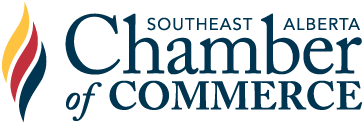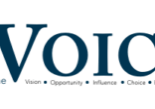It really isn't too much to say that the world is a rapidly changing and somewhat scary place. What most of us took for granted when we left school is simply no longer true. Society, technology, politics, and the myriad ways in which they interact are simply too complicated for any graduate of high school to understand and navigate well. A challenge for any business owner is hiring employees who are proficient in the foundational skills that support all of the others - the so-called 'soft skills' that provide the bedrock of a life well lived and a career that makes a difference in society.
Study in the humanities and social sciences isn't the kind of preparation that people first think of when they consider where to get the training they need for getting a job. Employers, it is thought, look for and prefer to hire people with specific technical skills. But, there is a growing consensus amongst business owners that the kind of employee they want has excellent communication, critical thinking, and problem-solving skills. Employees who understand the community, how people relate to one another, and have determination, resilience, and confidence are the sort of person who can be placed in a novel situation and be expected to have the flexibility to adapt and succeed. These are the traits of students of the humanities and social sciences.
Students in this program will spend two years in study of the humanities and social sciences that they themselves find interesting including psychology, sociology, anthropology, philosophy, political science, history, and literature. Additionally, they will spend eight weeks in a work-integrated learning placement where the skills they have learnt will be put to practical use.
Part of the attractiveness and usefulness of this diploma is the applicability to just about every profession. There are no jobs where curiosity, critical thinking, problem-solving, imagination, resilience, and the ability to clearly communicate are not just valued but are dramatically enhanced. A sustained study of the humanities and social sciences provides a wide variety of skills with a vast scope of applicability. Graduates will demonstrate the ability to bring together information from multiple sources to solve a problem, understand the local and regional history and culture, exercise proficiency in collaborative projects, and be able to recognise, understand, and communicate complicated relevant ideas.
More importantly than what the student will be able to do upon graduation is what the employee will be positioned to do as they grow: engage in life-long learning as a normal everyday activity, make connections between ideas that seem unrelated, and a life informed by ethical and intellectual values that enable good citizenship. The employee will be able to articulate who they are in relation to such factors as their work, faith, values, community, and ideas; moreover, they will be able to reflect on the development of their identity and their goals for further growth. The graduate of this program will know themselves and be well prepared to be the kind of employee and citizen any employer would desire.
Our community will benefit in a number of ways both subtle and obvious. These graduates will become informed and motivated leaders in the community that inspire a renewed dedication to the city and region. That dedication will inspire others to better, creative, and more imaginative solutions to problems.
These are the kinds of traits that will enliven the region with new and better ideas, employees who understand and are invested in the city and region, and people who can better draw upon the creative and intellectual skills that turn problems into challenges, and challenges into opportunities.
About the Author: Dr. Diane Gall is the Coordinator, Humanities and Social Science with the Medicine Hat College

